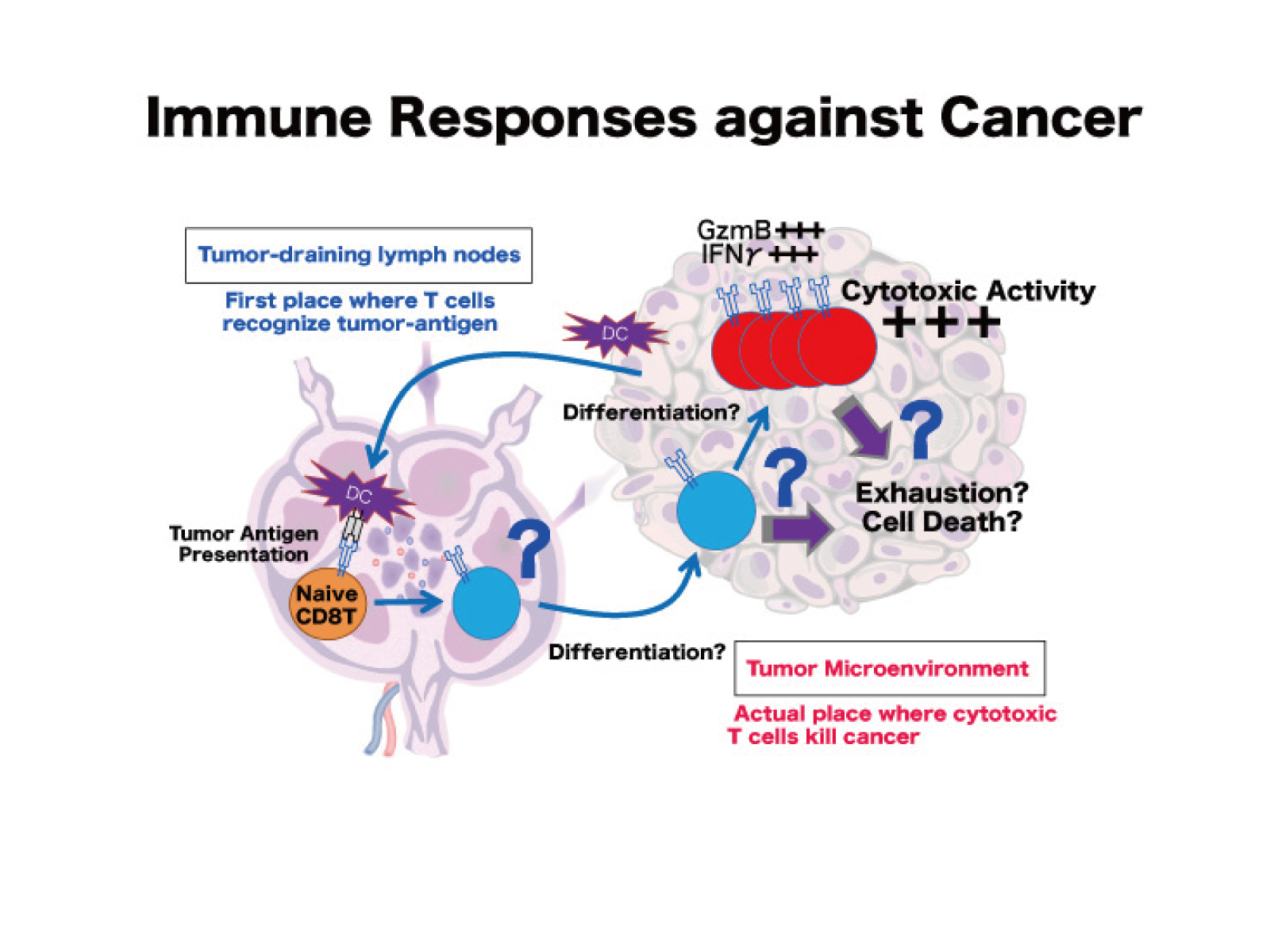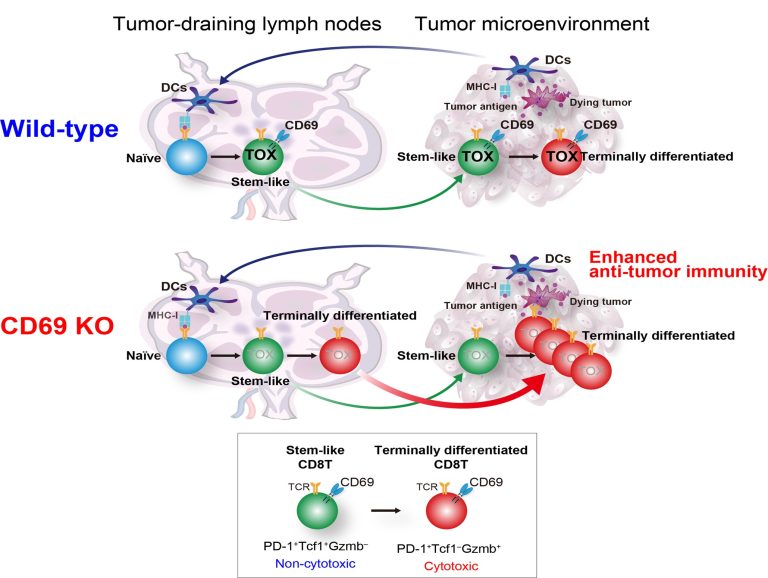Understanding of T cell-mediated anti-tumor immunity and its clinical application

-
- Principal Investigator
Professor / Motoko KIMURA
- Affiliation
Graduate School of Medicine, Chiba University
Researchmap
- Principal Investigator
The body’s immune system possesses the ability to attack cancer. While many immune cells are involved in this process, tumor-specific killer T cells play central roles in directly killing cancer cells. Cancer is not composed solely of cancer cells. Normal cells intersperse the cancer cells and exchange information with cancer cells to assist with their proliferation and the suppression of the immune response against cancer cells. This network of both cancer and normal cells is called the tumor microenvironment (TME).
Recent studies have revealed that different types of tumor-specific killer T cells exist in the TME. Examples include cells with a lesser capacity to attack cancer cells but are able to replicate through cell division to survive for a long time, or cells with a greater capacity to attack cancer cells but are relatively short-lived. If the body could maintain both types of tumor-specific killer T cells in the correct manner, they could attack cancer cells efficiently. However, the human immune system may fail to function properly for unknown reasons, which can accelerate cancer progression. Cancer cells try to create a favorable environment for their growth by using mechanisms to suppress attacks from the immune system. One such cancer strategy is the immune tolerance system. If we can elucidate the mechanism underlying immune tolerance, we can establish novel immunotherapy for cancer in the future.
We aim to understand the whole picture of immune responses against cancer and establish a research basis for the development of new cancer immunotherapy.


